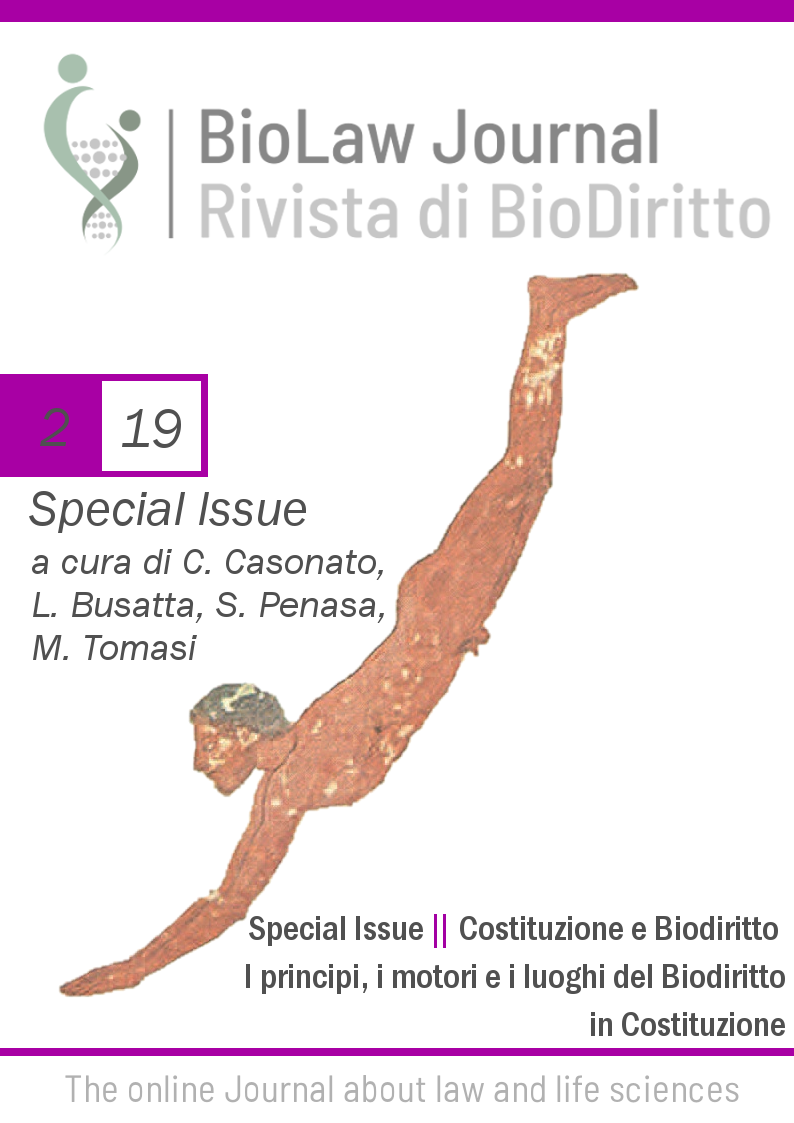Libertà di ricerca scientifica e parusia della dignità umana (a proposito dei limiti alla sperimentazione sull’embrione)
DOI:
https://doi.org/10.15168/2284-4503-482Parole chiave:
Freedom of scientific research, human dignity, embryo, experimentationAbstract
Provided in the theoretical constitutional model, the freedom of scientific research has gone over time towards a gradual metamorphosis in concrete case-law experience: initially, in an “individual” sense, moving from a mere demand of the individual in an omissive sense to a real request of positive behaviour of the State. However, the freedom of scientific research has received a decisive push in the direction of the gradual achievement of a collective dimension, mainly from the therapeutic revolution, first, and from the biological one, after (even if in the constitutional case-law this evolution has begun to be seen already starting from the decisions on experimental anticancer therapies). With the delicate balancing between the collective interest in scientific research and other needs worthy of protection, nevertheless, the Constitutional Court has specifically dealt only very recently with regard to experimentation on supernumerary embryos. In particular, on that occasion, the dignity of the embryo, on the one hand, seems to strengthen its protection for the future, but on the other hand, seems to be even contradictory (especially with regard to other precedent decisions).##submission.downloads##
Pubblicato
2019-12-19
Come citare
1.
Agosta S. Libertà di ricerca scientifica e parusia della dignità umana (a proposito dei limiti alla sperimentazione sull’embrione). BioLaw [Internet]. 19 dicembre 2019 [citato 18 febbraio 2026];(2S):469-82. Disponibile su: https://teseo.unitn.it/biolaw/article/view/1415





